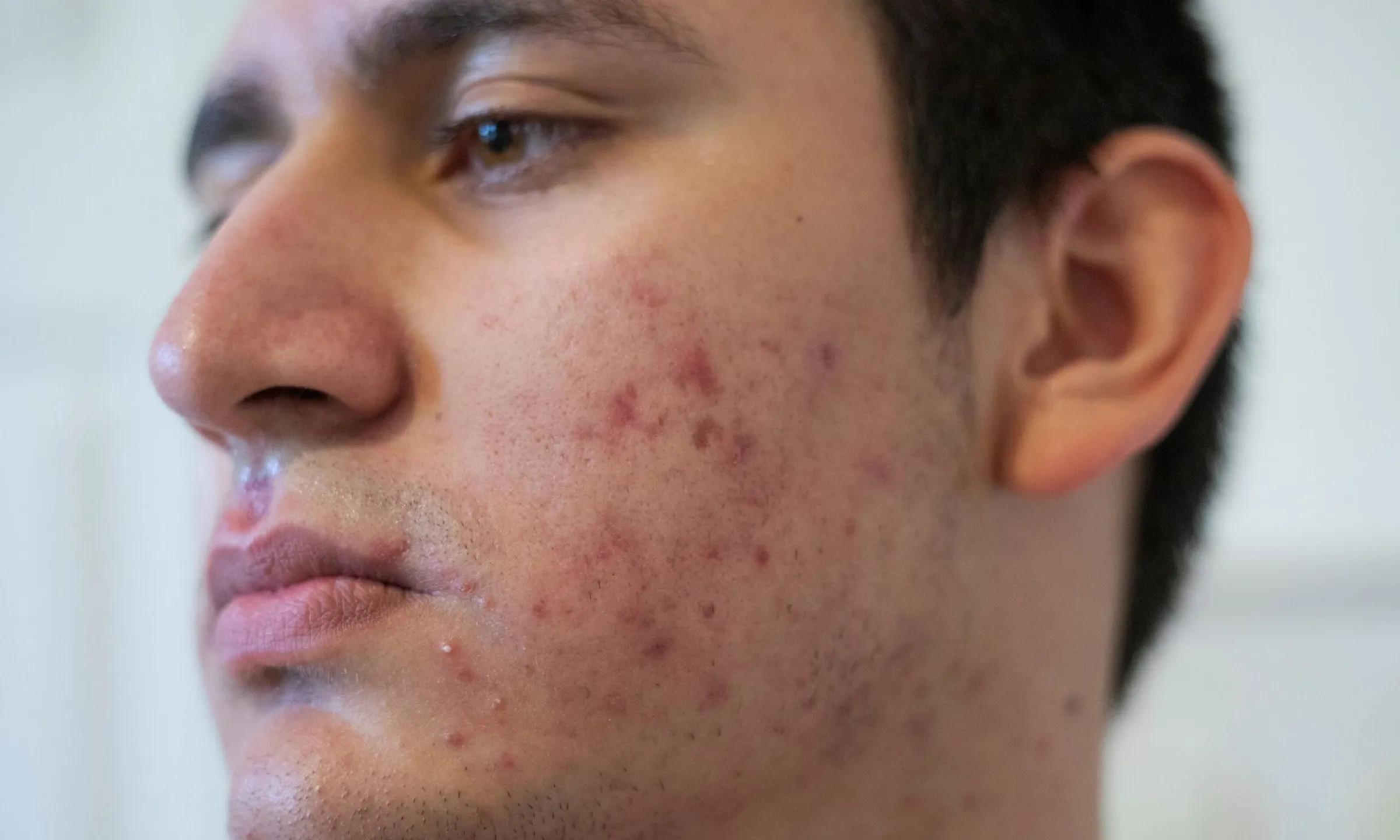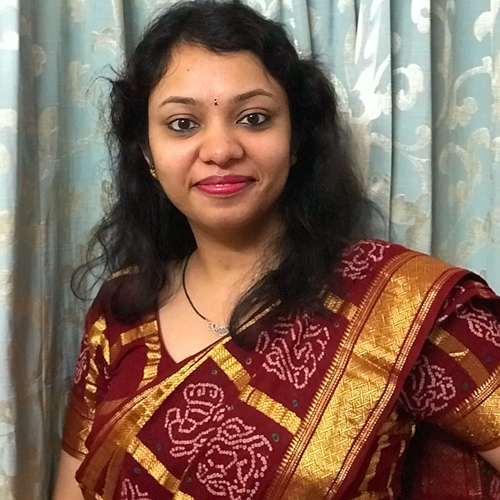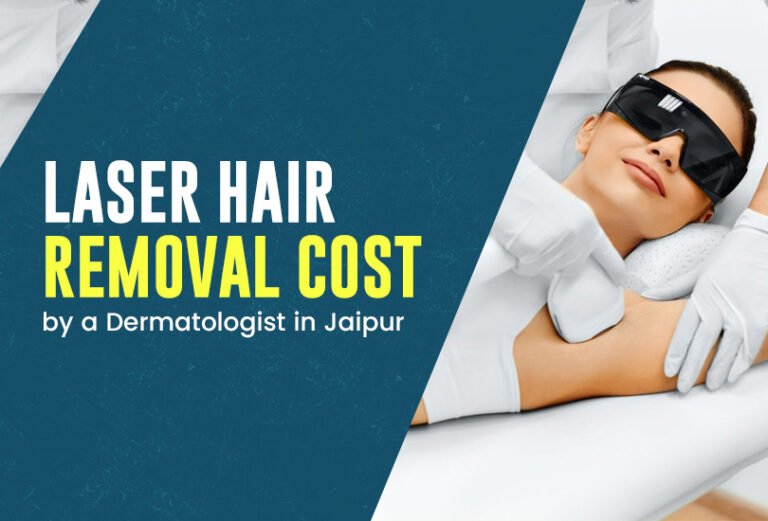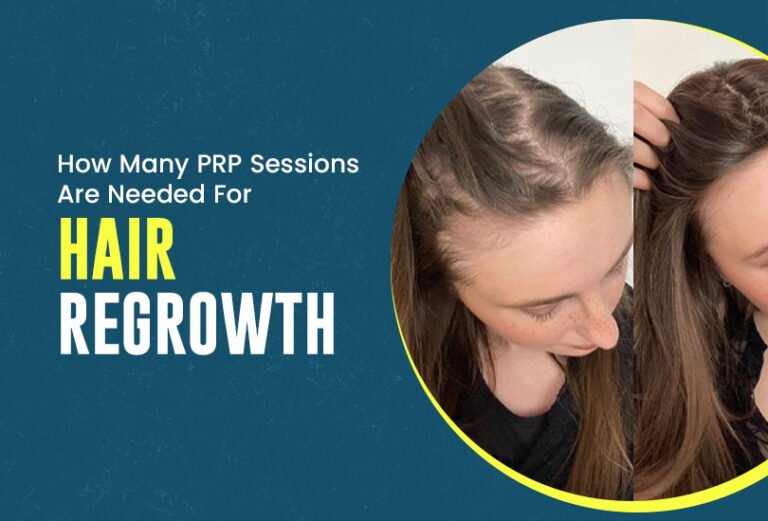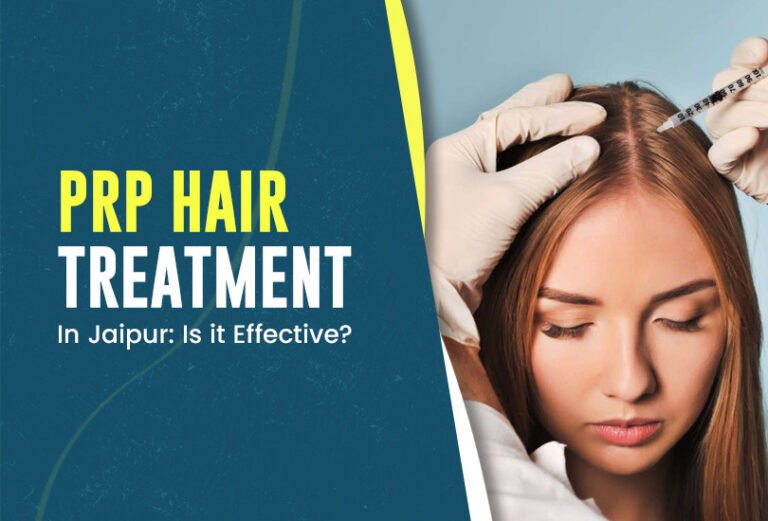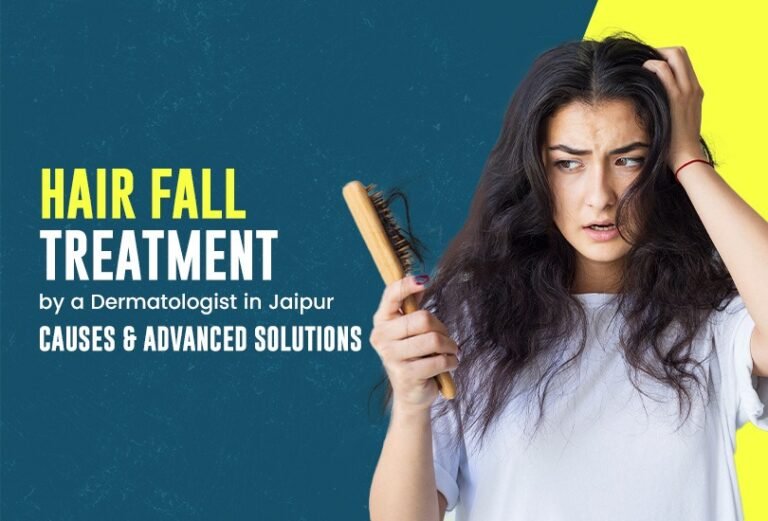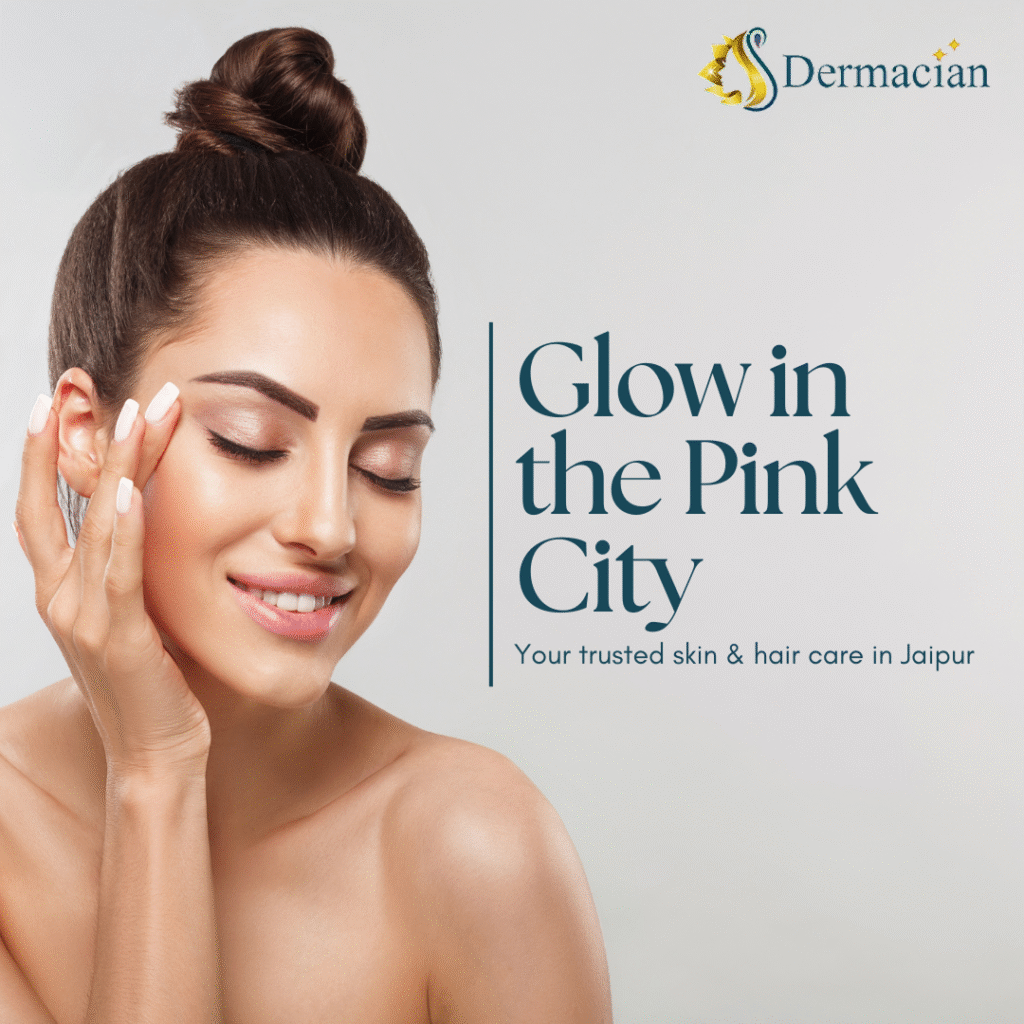Acne is more than just a skin concern—it can impact your confidence, appearance, and emotional well-being. Whether you’re a teenager experiencing hormonal breakouts or an adult struggling with recurring acne, the causes often go deeper than they seem. In a city like Jaipur, where dust, pollution, and extreme weather conditions are common, managing acne becomes even more challenging.
As expert dermatologists at Dermacian, Jaipur’s trusted skin and hair clinic, we often meet patients who have tried countless home remedies, over-the-counter creams, or online hacks—only to see their acne worsen. That’s because real acne care starts with understanding the root causes of the problem.
In this in-depth guide, we’ll break down the different types of acne, the reasons why it occurs, and both natural and medical treatments that can help you get clear, healthy skin. Whether you’re just starting to notice breakouts or have been battling acne for years, this guide will equip you with science-backed insights and expert advice from a medical perspective.
Let’s begin by understanding what acne really is and how it develops.
What is Acne?
Acne is a common skin condition that occurs when hair follicles become clogged with oil, dead skin cells, and bacteria. While it’s most prevalent among teenagers, acne can affect individuals of all ages. It typically appears on the face, forehead, chest, upper back, and shoulders—areas that have the most oil (sebaceous) glands.
From a dermatological perspective, acne is a multifactorial condition. It begins deep within the skin when excess sebum (oil) mixes with dead skin cells, blocking pores. When bacteria (especially Cutibacterium acnes) infect these clogged pores, inflammation develops—leading to pimples, nodules, or cysts.
Acne can vary in severity—from occasional breakouts to persistent, painful lesions that may result in permanent scarring if left untreated. It is important to note that acne is not caused by poor hygiene, although maintaining a clean skincare routine can help manage it.
At Dermacian, we classify acne based on its clinical type and severity to develop a personalized treatment approach. But before we dive into solutions, let’s first look at the various types of acne so you can identify what kind you might be dealing with.
Types of Acne
Not all acne is the same. Understanding the different types of acne can help you recognize the severity of your condition and decide whether home remedies, over-the-counter products, or professional treatment is required. At Dermacian, we often assess acne by its type before creating a personalized treatment plan.
Here are the six most common types of acne:
| Type | Description | Appearance |
|---|---|---|
| Whiteheads | Closed pores clogged with oil and dead skin cells. | Small, white or skin-colored bumps |
| Blackheads | Open pores filled with oil that turns dark when exposed to air. | Dark or black spots on the skin |
| Papules | Inflamed, small red bumps that are tender to touch. | Red, raised, no visible pus |
| Pustules | Inflamed papules filled with pus, often with a white or yellow center. | Red base with a white head |
| Nodules | Large, painful lumps deep under the skin, often harder than typical pimples. | Firm, inflamed, without pus |
| Cysts | Deep, painful, pus-filled lesions that can cause scarring. | Soft, fluid-filled lumps |
Each type of acne may require a different treatment approach. For example, while mild whiteheads and blackheads may be managed at home, nodular and cystic acne usually need medical attention to prevent long-term skin damage and scarring.
In the next section, we’ll explore the major causes behind these breakouts and what might be triggering your acne—especially in the climate and lifestyle conditions of Jaipur.
Major Causes of Acne
Acne is often the result of a combination of internal and external factors. At Dermacian, we’ve found that understanding these root causes is the first step toward effective, long-term treatment. While acne may appear similar across individuals, its triggers can vary significantly depending on age, skin type, hormones, and environmental exposure.
Here are the most common causes of acne, especially relevant for individuals living in or around Jaipur:
1. Hormonal Imbalance
One of the leading causes of acne, especially among teenagers and women, is a fluctuation in hormone levels. During puberty, the body produces more androgens, which stimulate oil glands in the skin. In women, conditions like PCOS (Polycystic Ovary Syndrome), menstruation cycles, pregnancy, or menopause can all contribute to hormonal acne.
2. Excess Sebum Production
Sebum is the natural oil produced by the skin. When produced in excess, it can clog pores and create an ideal environment for bacteria to grow, resulting in acne. People with oily skin types are more prone to breakouts caused by sebum buildup.
3. Blocked Hair Follicles
When dead skin cells are not regularly shed, they can accumulate and combine with oil to block hair follicles. This leads to the formation of whiteheads and blackheads, and if infected, may escalate into papules or pustules.
4. Bacterial Growth
A specific bacteria called Cutibacterium acnes (formerly Propionibacterium acnes) naturally lives on your skin. When trapped in clogged pores, it can multiply and trigger inflammation, leading to more severe types of acne such as nodules and cysts.
5. Diet and Lifestyle
High-glycemic foods, dairy products, excessive sugar, and processed foods have been linked to acne flare-ups. Similarly, lifestyle habits such as smoking, poor hydration, and irregular sleep patterns can disrupt the body’s balance and worsen skin conditions.
6. Stress
Stress doesn’t directly cause acne, but it can aggravate existing conditions by increasing cortisol levels, which in turn stimulates oil production. It also slows down healing, meaning existing acne takes longer to resolve.
7. Pollution and Weather Conditions (Especially in Jaipur)
The hot, dusty environment in Jaipur can cause pores to become clogged more easily, while UV exposure can irritate existing acne lesions. Sweat mixed with pollutants can also lead to skin congestion and bacterial buildup.
Understanding which of these factors apply to you can help guide your acne management strategy. In the next section, we’ll explore how to approach treatment using both natural methods and dermatologist-approved medical solutions.
Natural Remedies for Mild Acne
For individuals experiencing mild to moderate acne, natural remedies can sometimes help reduce inflammation, soothe the skin, and prevent new breakouts. However, it’s important to note that while home remedies may offer relief, they are not a substitute for professional care—especially in persistent or severe cases.
At Dermacian, we recommend the following evidence-based natural remedies, but always with guidance on when to switch to clinical treatments.
1. Aloe Vera
Aloe vera gel has soothing and anti-inflammatory properties. It can help reduce redness and swelling associated with acne. Apply fresh aloe vera gel directly to the skin after cleansing to calm irritated areas.
2. Tea Tree Oil
Known for its antibacterial qualities, tea tree oil can reduce acne-causing bacteria on the skin. Always dilute it with a carrier oil (like coconut or jojoba oil) before applying, as it can be irritating in pure form.
3. Green Tea Extract
Green tea is rich in antioxidants and can help reduce oil production and inflammation. Applying cooled green tea directly to the skin or using products with green tea extract can be beneficial.
4. Honey and Cinnamon Mask
Both honey and cinnamon have antibacterial properties. A face mask combining these ingredients may help reduce mild acne. However, this should be used cautiously, as cinnamon can be irritating to sensitive skin.
5. Ice Compress
Applying ice wrapped in a clean cloth for a few seconds can reduce swelling and redness of inflamed pimples or cysts. It offers temporary relief, especially before important events or meetings.
Important Precautions
- Avoid scrubbing the skin harshly or using DIY methods like toothpaste or lemon juice, which can damage your skin barrier.
- Never pick or pop pimples—this increases the risk of scarring.
- Always do a patch test before trying any home remedy to avoid allergic reactions or irritation.
While natural remedies may provide temporary relief, they are not always effective for long-term control or deeper acne issues like nodules or cysts. If your breakouts are persistent or causing marks, it’s time to consider medical-grade treatments under dermatologist supervision.
Medical Acne Treatments (Clinic-Based)
While home remedies may help manage occasional breakouts, moderate to severe acne often requires medical intervention. At Dermacian, we follow a personalized treatment approach that targets the root causes of acne while minimizing long-term damage such as scarring and pigmentation.
Here are the most effective medical treatments we offer, depending on the type and severity of your acne:
1. Topical Medications
These are often the first line of treatment for mild to moderate acne:
- Retinoids (like adapalene or tretinoin): Unclog pores and reduce inflammation.
- Benzoyl Peroxide: Kills acne-causing bacteria and reduces oil production.
- Salicylic Acid: Helps exfoliate dead skin cells and prevent blocked pores.
- Antibiotic Creams: Target bacteria and reduce redness.
These treatments are usually prescribed based on your skin type and acne stage after a dermatological assessment.
2. Oral Medications
For persistent or severe acne, especially involving nodules and cysts, oral medication may be recommended:
- Antibiotics (like doxycycline or minocycline): Control bacteria and inflammation.
- Hormonal Therapy (for women): Birth control pills or anti-androgens like spironolactone help manage hormonal acne.
- Isotretinoin (commonly known as Accutane): A powerful option for severe cystic acne, used under strict medical supervision.
3. In-Clinic Dermatological Procedures at Dermacian
Our Jaipur-based clinic provides advanced acne treatments designed to address both active breakouts and long-term skin health:
a) Carbon Facial
This non-invasive laser-based treatment cleanses the skin deeply, reduces sebum, and minimizes pore size. Ideal for oily, acne-prone skin.
b) Chemical Peels
Peels containing salicylic acid, glycolic acid, or mandelic acid exfoliate dead skin, unclog pores, and reduce acne marks. We tailor peels based on your skin sensitivity and pigmentation.
c) Laser Treatments for Acne Scars
Using fractional laser technology, we treat deep acne scars and stimulate collagen regeneration. This improves texture and reduces visible scarring over time.
Learn more → Acne Scar Treatment
4. Customized Skincare Regimens
We also provide clinic-supervised skincare routines using dermatologist-approved products. These plans are built after analyzing your skin under magnification and considering factors like age, oil production, and sensitivity.
By combining topical, oral, and in-clinic therapies, we aim for long-term acne clearance and healthier skin barrier restoration. These treatments are conducted under the supervision of experienced dermatologists with post-treatment follow-ups to ensure safety and effectiveness.
When Should You See a Dermatologist?
While occasional breakouts may be manageable with home care, certain signs indicate that it’s time to seek professional dermatological help. At Dermacian Jaipur, we often meet patients who delayed treatment, only to face long-term complications like scarring, pigmentation, and emotional distress.
Here are key situations where consulting a dermatologist is strongly recommended:
1. Persistent or Worsening Acne
If your acne has lasted more than 3 months despite trying over-the-counter products or home remedies, it’s likely time for a clinical diagnosis and targeted treatment plan.
2. Painful or Cystic Acne
Deep, painful nodules or cysts under the skin often lead to permanent scarring if not treated early. These require oral medication or advanced dermatological procedures that cannot be managed at home.
3. Acne Scars and Dark Spots
If your acne has healed but left behind pits, pigmentation, or uneven texture, professional treatments such as chemical peels, microneedling, or laser therapy are necessary to restore skin quality.
4. Emotional Impact or Low Confidence
Acne can affect more than just your skin. If breakouts are impacting your mental health, confidence, or social life, seeking medical care can help you regain control and peace of mind.
5. No Results from Home Remedies or Online Products
The market is flooded with generic solutions that may not be suitable for your skin type. Dermatologists can assess your specific skin condition and provide evidence-based care tailored to you.
At Dermacian, our goal is to not just treat the surface symptoms but also understand the underlying causes unique to your skin and lifestyle. We use a structured diagnostic approach and clinical photography to monitor progress and adjust treatments as needed.
If you’re unsure whether your acne requires medical attention, schedule a consultation with our dermatology team. Early intervention can prevent years of frustration and skin damage.
Why Choose Dermacian Jaipur for Acne Treatment
When it comes to acne care, finding the right dermatologist is just as important as finding the right treatment. At Dermacian Jaipur, we bring together medical expertise, advanced technology, and patient-centered care to offer the most comprehensive acne treatment experience in Rajasthan.
Here’s what sets us apart as a trusted destination for acne and skin health:
1. Led by Renowned Experts
Dermacian is led by two of Jaipur’s most respected skin specialists:
- Dr. Vivek Rungta – MBBS, MD, FACSI, MNSI
An internationally recognized dermatologist, cosmetologist, laser and hair transplant specialist with over a decade of experience. - Dr. Tanu Rungta – MBBS, MD, MIMA
A certified dermatopathologist and cosmetologist known for her precision in aesthetic dermatology and laser procedures.
Their combined expertise ensures that each patient receives not just treatment, but a complete, personalized skin health plan.
2. A Legacy of Excellence Since 2014
What began as a small dermatology clinic has now grown into a superspeciality skin and hair care center. Over the past 10+ years, Dermacian has treated thousands of patients with all kinds of skin conditions, including stubborn acne and acne scars, using globally recognized protocols.
3. Personalized, Patient-First Approach
Every individual’s acne is unique. Our approach focuses on:
- Custom skin analysis and diagnosis
- Tailored skincare regimens and medications
- Lifestyle and diet consultation
- Regular follow-ups to track improvement
We believe in treating the root causes, not just the symptoms.
4. Advanced Clinical Treatments Under One Roof
Dermacian offers a complete range of medical and cosmetic treatments for acne, including:
- Carbon facials for oily skin and breakouts
- Laser therapies for acne scars
- Chemical peels customized for your skin sensitivity
- Prescription-based topical and oral medications
Our facility uses FDA-approved technologies to deliver safe, effective results.
5. Trusted by Patients Across Jaipur
With thousands of satisfied patients, 5-star ratings, and high patient retention, Dermacian continues to lead as Jaipur’s most trusted dermatology clinic. We also offer teleconsultations—so even if you can’t visit in person, expert care is still within reach.
6. Ethical, Affordable, and Transparent
We pride ourselves on delivering care with integrity. Our pricing is transparent, and our recommendations are always in the patient’s best interest. No unnecessary procedures, no overselling—just honest care.
At Dermacian, your skin health is our mission. From teenage breakouts to adult cystic acne and post-acne scarring, we are equipped to guide you through every stage of your skin recovery journey.
Conclusion
Acne is one of the most common yet misunderstood skin conditions. While occasional breakouts may be harmless, persistent or severe acne can lead to long-term scarring and emotional distress if not managed properly. The key to lasting results lies in understanding the underlying causes, choosing the right treatment, and following a plan tailored to your unique skin type.
At Dermacian Jaipur, we combine dermatological expertise, advanced technology, and compassionate care to treat acne from the inside out. Whether you’re dealing with hormonal acne, cystic breakouts, or post-acne scars, our team is here to guide you with a personalized treatment plan backed by medical science and years of experience.
Don’t let acne control your confidence. Get expert help today and take the first step toward clearer, healthier skin.
Frequently Asked Questions (FAQs)
What are the top causes of acne?
The most common causes of acne include hormonal fluctuations, excess oil production, clogged pores, bacterial infections, stress, and environmental factors like pollution. In cities like Jaipur, dust and humidity can worsen acne by blocking pores and irritating the skin.
Can acne be treated naturally without medication?
Mild acne can sometimes be managed with natural remedies such as aloe vera, green tea extract, or diluted tea tree oil. However, for moderate to severe acne, medical intervention is usually necessary to prevent scarring and recurrence. It’s best to consult a dermatologist before starting any treatment.
Which treatment is best for acne scars?
The ideal treatment for acne scars depends on the type and depth of the scars. At Dermacian, we offer chemical peels, carbon laser facials, and fractional laser resurfacing—all personalized based on skin type and scar severity.
How long does it take to see results from acne treatments?
Results vary based on the treatment and the individual’s skin condition. Most patients begin seeing improvement within 4 to 6 weeks of starting a medical regimen, while procedures like peels or laser treatments may offer quicker visible results when part of a structured plan.
Can adults get acne even if they didn’t have it as teenagers?
Yes. Adult acne, especially among women, is quite common and often linked to hormonal imbalances, stress, or lifestyle changes. It requires a different treatment approach than teenage acne, often combining dermatological and hormonal care.
Is it safe to do a facial if I have active acne?
Facials designed specifically for acne-prone skin—like the Carbon Laser Facial offered at Dermacian—can be beneficial. However, traditional facials may irritate inflamed skin. Always consult a dermatologist before booking a facial during active breakouts.

